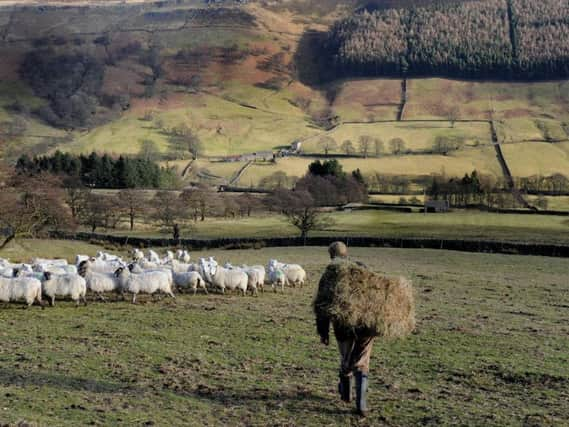'Clear lessons must be learned to avoid repeat of agri-environment payments debacle'


Advertisement
Hide AdAdvertisement
Hide AdGeorge Dunn, chief executive of the Tenant Farmers Association (TFA), said the Government must now prove that it has learned from its past mistakes, after the welcome announcement this week that all unpaid agri-environment scheme payments will be paid in full next month.
According to the National Farmers’ Union (NFU), the Rural Payments Agency’s pledge to settle payments equates to around 22,500 farmers being paid a total of £115m that they are owed through Countryside and Environmental Stewardship schemes, with some claims dating back to 2015.
Mistakes cannot be repeated
TFA chief Mr Dunn said: “We must now work constructively to ensure that the remaining years of Environmental and Countryside Stewardship run smoothly and that in the development of the Environment Land Management Scheme (ELMS) concept, lessons are learnt from the mistakes that have been made,” Mr Dunn said.
Advertisement
Hide AdAdvertisement
Hide Ad“ELMS must proceed on a more sustainable basis. The TFA believes that the tried and tested ways of working through the Environmentally Sensitive Areas schemes of the 1980s and 1990s should be looked at again.
“Local priorities, local accountability and trusted project officers able to offer advice and with the flexibility to make pragmatic decisions against scheme criteria are what is needed. Not large-scale IT projects that lead to more process driven schemes with little interface at the coalface,” he said.
The National Farmers’ Union said the pressure on the RPA had paid off.
The union’s deputy president Guy Smith said: “This news from the RPA will help provide much-needed relief for those farming businesses waiting on outstanding Countryside Stewardship and Environmental Stewardship payments.
Advertisement
Hide AdAdvertisement
Hide Ad“The news comes just as we were instructing solicitors through our Legal Assistance Scheme to assist individual farmer members in pursuing their debt claims against the RPA. Hopefully, this service will no longer be necessary.
“However, we will continue to monitor the situation to make sure these overdue payments are made in full and at last hit farm bank accounts.”
Crucial income
Will Terry, the NFU’s regional livestock board chairman who farms at Ravenscar near Scarborough, said he was owed a 2018 payment of £3,000 for the management of a traditional hay meadow on his farm, but that many in the uplands were owed far more.
“Many hill farms are in moorland schemes that generate a crucial part of their income. They have been doing work to maintain the uplands in the correct way and haven’t had the money which is due to them,” he said.
Advertisement
Hide AdAdvertisement
Hide Ad“It’s not about people taking a payout, it’s for very specific land management that’s about nurturing wildlife – it’s not about sheep farming.”
Mr Terry said the concept of existing agri-environment schemes was not the problem but the methods of processing agricultural payments due to poor government IT systems procurement.
“The Government must get any new agri-environment payments scheme right because this situation has been ridiculous. In the future, it has to be about getting value for money for the farmer and the taxpayer.”
Rebuild trust
Tim Breitmeyer, president of the Country Land and Business Association, said the payments announcement was only the start of a process of rebuilding trust and credibility.
Advertisement
Hide AdAdvertisement
Hide Ad“Having delivered their contractual responsibilities, farmers will expect government to honour theirs and given the expected move to a wider and more encompassing system of payment for environmental work post-Brexit, they will want meaningful reassurances of being paid in a timely and efficient manner,” he said.
Announcing the July payments earlier this week, the RPA’s chief executive, Paul Caldwell, said: “We are determined to build on the improvements that we have already put in place, keep up a regular cycle of timely payments, and restore confidence in these schemes which are so important for our environment.”
The Government has said that the future Environmental Land Management scheme, which will replace the existing agri-environment schemes when Britain leaves the European Union, will undergo tests and trials with farmers and industry groups before being rolled out.
The new scheme is not expected to be fully operational until late 2024.
Future insight
Advertisement
Hide AdAdvertisement
Hide AdYears of delayed agri-environment payments have given farmers an insight into the industry’s future without government funded subsidies, according to one business consultant.
“The industry needs to act now to be prepared for change,” added Simon Britton, partner at land, property and business consultancy George F. White.
“Rather than dwell on this, we need to work together, discuss and share knowledge in order to review businesses and ensure they can survive financially when the time comes.”